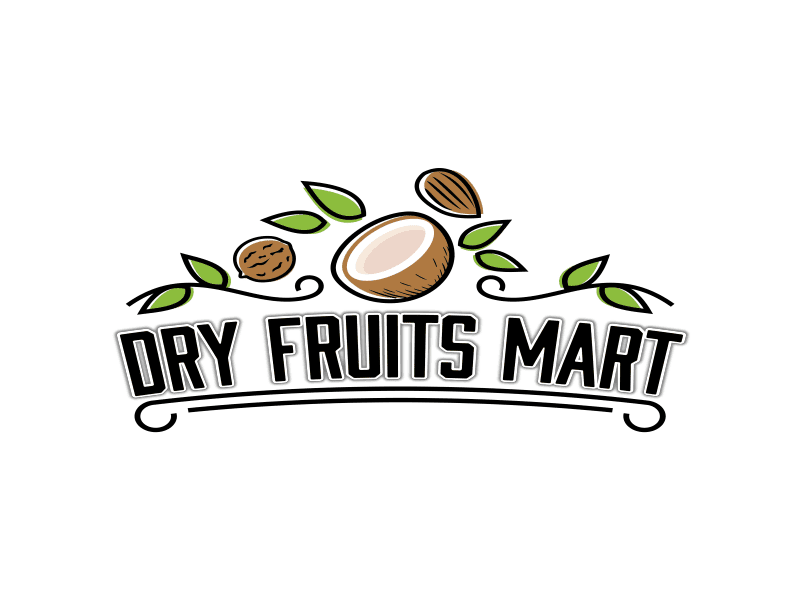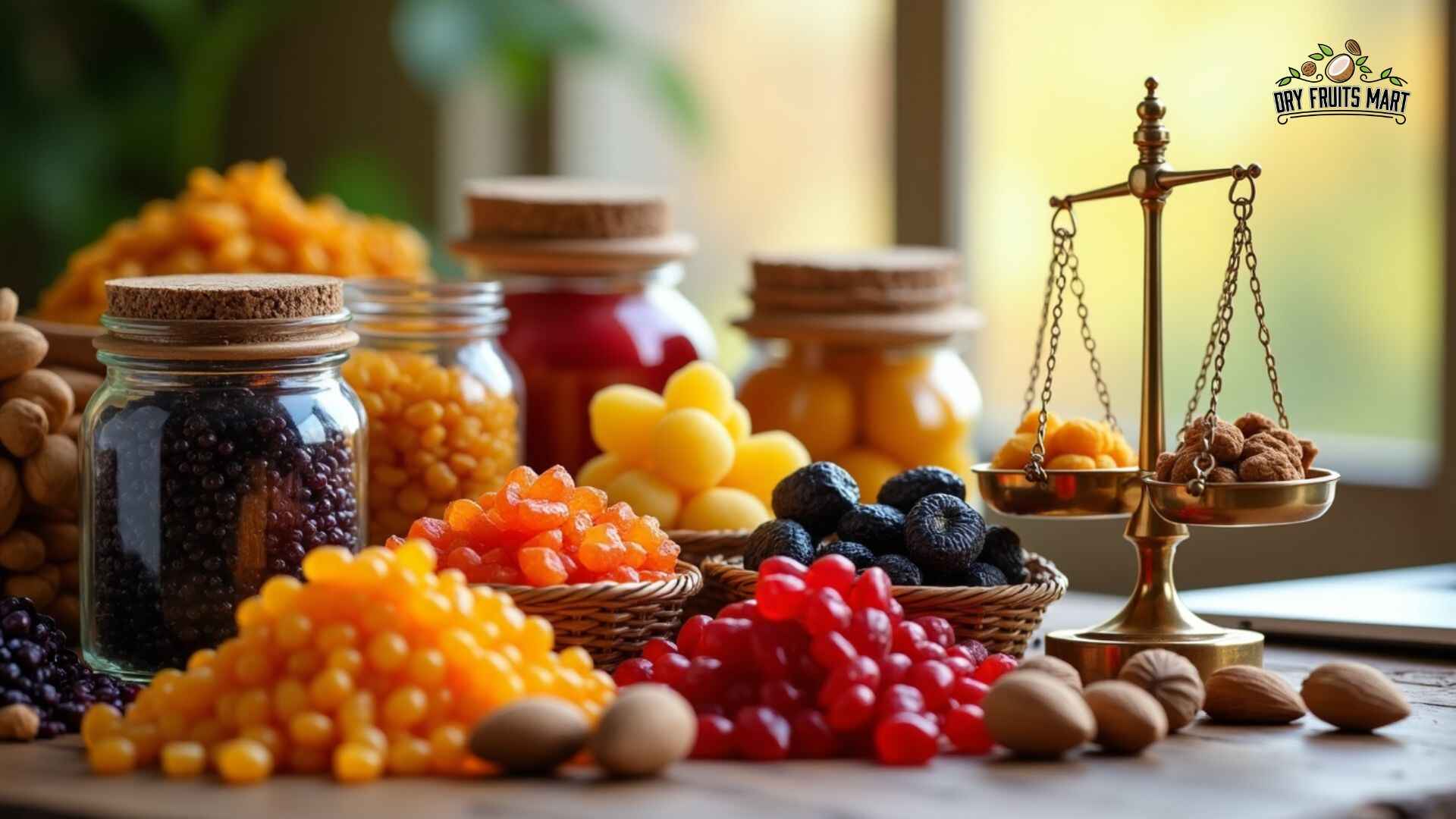Dry fruits have become increasingly popular in Pakistan as a healthy snack option and essential ingredient in many traditional recipes. With the rise of e-commerce, buying dry fruits online has become a convenient way for consumers to access a wide variety of high-quality products from the comfort of their homes. The dry fruit price in Pakistan can vary depending on the type and quality, making online shopping an attractive option for comparing prices and finding the best deals.
This guide will explore the different types of dry fruits available online in Pakistan, factors to consider when making a purchase, and top platforms for buying dry fruits online. It will also provide tips for storing and consuming dry fruits to maintain their freshness and nutritional value. By the end of this article, readers will have the knowledge to make informed decisions when buying the best dry fruits online in Pakistan.
Types of Dry Fruits Available Online in Pakistan
Nuts (almonds, cashews, pistachios, coconut, etc.)
Pakistan’s online market offers a wide variety of dry coconut, catering to different tastes and nutritional needs. Dry Coconut, known for their health benefits, are available in various forms. Cashews, another popular choice, come in plain, roasted, and flavored options such as chili, salt & pepper, and BBQ. Pistachios, a favorite snack, are sold both in-shell and as kernels, with salted and plain varieties available. Walnuts, rich in omega-3 fatty acids, are offered with and without shells. Other nuts found online include peanuts, hazelnuts, pine nuts, and the less common Brazilian nuts and macadamia nuts.
Dried fruits (raisins, dates, figs, etc.)
Dried fruits are a significant part of Pakistan’s dry fruit market. Dates, a staple during Ramadan, come in numerous varieties such as Ajwa, Medjool, Sukkari, and Mabroom. Dried figs, also known as anjeer, are available in organic and premium qualities. Raisins, locally called kishmish, are sold in different types, including black raisins. Other dried fruits found online include apricots, mangoes, pineapples, and kiwis, offering a range of flavors and nutritional benefits to consumers.
Seeds (pumpkin seeds, sunflower seeds, etc.)
Seeds have gained popularity as healthy snacks and ingredients in Pakistan. Pumpkin seeds, available both with and without shells, are rich in nutrients and often used in seed cycling for hormonal balance. Sunflower seeds, another common option, are sold plain, roasted, and salted. Chia seeds, known for their omega-3 content, and flaxseeds, often sold as powder, are also readily available. Other seeds found online include sesame seeds (both white and black varieties), quinoa, and hemp seeds, catering to the growing demand for superfoods in the Pakistani market.
Factors to Consider When Buying Dry Fruits Online
Quality and freshness
When purchasing dry fruits online, it’s crucial to prioritize quality and freshness. Look for sellers who offer freshly packed products and avoid those selling stale or expired items. Reputable online platforms often provide detailed product descriptions, including information about the origin, processing methods, and quality of the dry fruits. This allows customers to make informed choices and ensure they receive fresh, high-quality products.
Price and value for money
While price shouldn’t be the sole determining factor, it’s essential to compare prices across different online stores to ensure you’re getting the best value for your money. Many platforms offer competitive pricing due to lower operational costs and the absence of intermediaries. Look for deals, discounts, and bulk purchase options that can help you save money without compromising on quality. However, be cautious of extremely low prices, as they may indicate lower quality or outdated products.
Packaging and storage
Proper packaging has a significant impact on maintaining the freshness and nutritional value of dry fruits. Look for sellers who use airtight packaging to protect the products from moisture, air, and contaminants. This is particularly important for preserving the flavor and texture of nuts and dried fruits. Additionally, check if the seller provides information about proper storage methods to help you maintain the quality of the dry fruits after purchase.
Seller reputation and reviews
Before making a purchase, take the time to research the seller’s reputation. Read customer reviews and ratings to get an idea of the store’s reliability and the quality of its products. Positive feedback from verified buyers can provide valuable insights into the seller’s commitment to quality and customer satisfaction. Pay attention to reviews that specifically mention the freshness, taste, and overall quality of the dry fruits.
Top Online Platforms for Buying Dry Fruits in Pakistan
E-commerce marketplaces
Leading e-commerce platforms in Pakistan, such as Daraz, Alibaba, and Shopsy, offer a wide selection of dry fruits from various sellers. These platforms provide convenience and accessibility to shoppers nationwide, allowing them to compare prices and choose from a diverse range of options. With user-friendly interfaces and secure payment systems, these marketplaces make it easy for customers to find and purchase their favorite dry fruits online.
Specialty dry fruit retailers
For those seeking premium-quality dry fruits, specialized websites dryfruitsmart.pk Online Store focus exclusively on offering a superior shopping experience. These retailers often source their products directly from high-quality growers, ensuring freshness and taste. Many specialty stores, such as Dry Fruits Mart, pride themselves on carefully selecting each product and maintaining strict quality control measures. These platforms frequently offer discounts and deals, making it more affordable for customers to stock up on their favorite dry coconut benefits healthy snacks.
Social media-based sellers
Social media platforms have become popular channels for buying dry fruits in Pakistan. Many small businesses and individual sellers use platforms like Facebook and Instagram to showcase their products and connect with customers. Dry Fruits Mart, for example, uses social media to offer special discounts and promotions on dried fruits from the region. These sellers often provide personalized service and may offer unique or locally sourced products that are not readily available on larger platforms. However, customers should exercise caution and verify the reputation of social media-based sellers before making a purchase.
Tips for Storing and Consuming Dry Fruits
Proper storage techniques
To maintain the quality and freshness of dry fruits, proper storage is crucial. The best way to store dry fruits is in airtight containers in a cool, dark place. This helps preserve their flavor and nutritional value. For longer-term storage, refrigeration or freezing can be beneficial, especially in humid climates. When storing bulk purchases, divide them into smaller portions to minimize exposure to air and contaminants. Using food-grade desiccant packets in storage containers can provide additional protection against moisture.
Recommended daily intake
The recommended daily intake of dry fruits varies depending on individual needs and health goals. For weight gain, consuming 1/2 to 1 cup (about 60 to 120 grams) daily can be beneficial. When aiming for weight loss, a smaller portion of 1/4 to 1/3 cup (about 30 to 40 grams) is recommended. Pregnant women can benefit from 1/4 to 1/2 cup (about 30 to 60 grams) daily. It’s important to remember that dry fruits are calorie-dense, so portion control is key.
Creative ways to incorporate dry fruits into your diet
There are numerous ways to enjoy dry fruits in your daily meals. Add them to oatmeal or yogurt for a nutritious breakfast. Create a homemade trail mix with a variety of dry fruits and nuts for a healthy snack. Incorporate them into salads, rice dishes, or stuffed vegetables for added flavor and nutrition. Use dry fruits in baked goods or as natural sweeteners in recipes. By exploring these options, you can enjoy the health benefits and delicious taste of dry fruits in various ways.
Conclusion
The online dry fruit market in Pakistan has opened up a world of possibilities for consumers to access high-quality, nutritious snacks with ease. From nuts and dried fruits to seeds, the variety available caters to different tastes and dietary needs. By keeping in mind factors like quality, price, packaging, and seller reputation, shoppers can make informed decisions and get the best value for their money.
To wrap up, buying dry fruits online in Pakistan has an impact on how people shop for these healthy snacks. With proper storage and creative ways to include them in daily meals, consumers can enjoy the full benefits of these nutrient-rich foods. As the market continues to grow, it offers more choices and convenience to health-conscious shoppers across the country.
FAQs
What are the best types of dry fruits available in Pakistan?
In Pakistan, some of the most popular dry fruits include dried coconut, raw almonds, salted cashews, salted pistachios, shelled walnuts, mixed dry fruits, raw cashews, dry figs, and salted peanuts. Their prices vary, with raw almonds costing around Rs. 1,045 for 310g, and salted peanuts being the most economical at Rs. 495 for 310g.
Which Pakistani cities are renowned for their dry fruits?
Cities known for their dry fruit production in Pakistan include Faisalabad, Quetta, Pishin, Zhob, Kalat, and Loralai in Balochistan; Peshawar, Swat, Mardan, Buner, and Chitral in Khyber Pakhtunkhwa; and Hunza, Skardu, Shighar, Roundu, Khaplu, and Baltistan in Gilgit-Baltistan. These regions are pivotal in the dry fruit industry of the country.
Which dry fruit is considered the king in Pakistan?
Pine nuts, also known as Chilghoza, are regarded as the king of dry fruits in Pakistan. They are highly valued for their premium quality and are a favorite among local consumers.
How much does Kishmish fruit cost in Quetta?
In Quetta, the price for Kishmish fruit is Rs. 455 per 500 grams. Other varieties such as Kaghzi Badaam are also available at c


